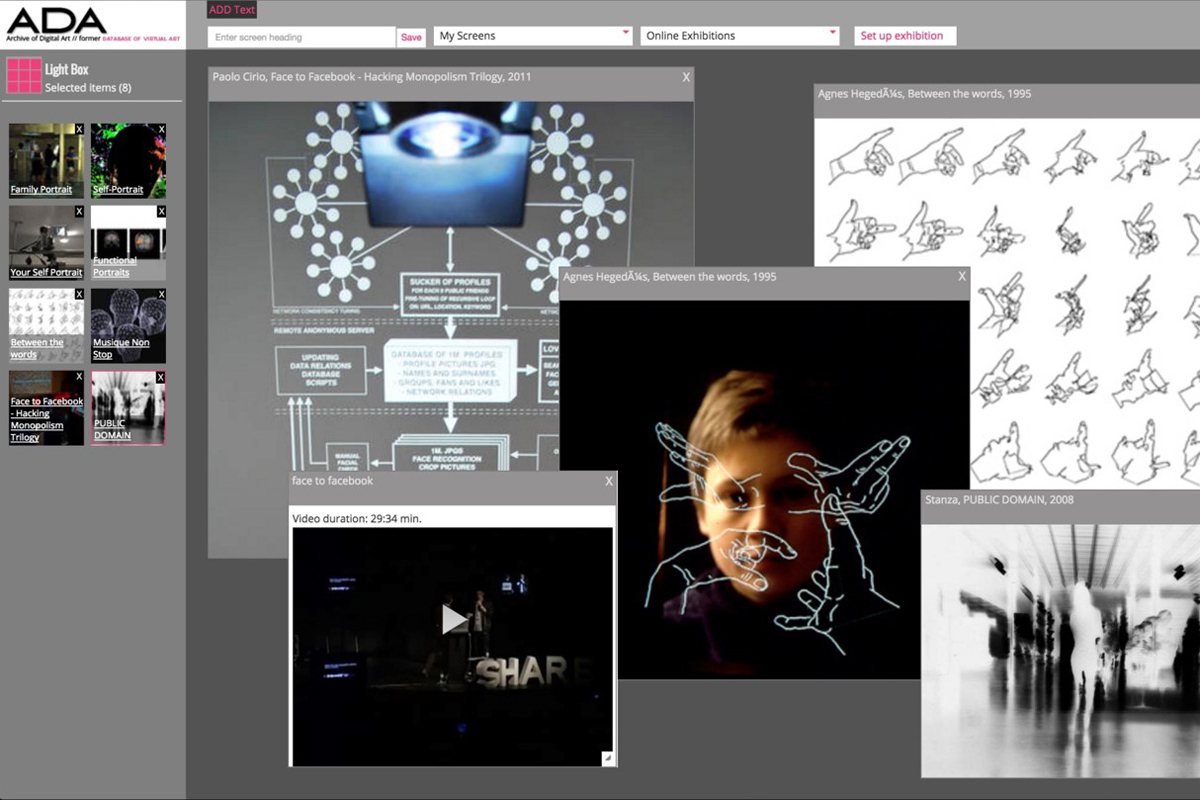Leading a project on digital arts and participating in six other projects in the fields of continuing education research, digital transformation and open access: Danube University Krems is demonstrating its expertise in digitization.
The project "Teaching and Research Infrastructure for Digital Arts at Universities" (LeFo) is led by the Department for Image Science at Danube University Krems (Univ.-Prof Dr. Oliver Grau, MAE) and is carried out in cooperation with the University of Art Linz and the University of Applied Arts Vienna. On the one hand, the focus is on the expansion of the already successful Archive of Digital Art (ADA) into a co-creative Open Science data infrastructure and on the other hand on the development of prototypes of future-oriented forms of documentation of digital art. The project also aims to develop possibilities of virtual walkability and immersive experiential spaces of digital archives by means of augmented reality and interactive 360-degree fulldome environments. The archive is drawn up as a potentially haptic experienceable interactive space, whereby the project considers historically grown forms of documentation as well as future scenarios. The project fund amounts to 1,2 million euros over four years.
Danube University Krems as a sought-after cooperation partner
Cooperation with Danube University Krems is also sought in digitization projects, especially in the field of research on continuing education. Four projects in which the Department for Continuing Education Research and Educational Technologies cooperates with other universities have received funding commitments. Univ.-Prof. DI Dr. Stefan Oppl, MBA, manages these projects internally.
Expertise in continuing education research
Two projects are implemented with the Johannes Kepler University Linz: "Formative Math-Skill-Testing for Promoting MINT-Studies" and "TRANSFORM". The first project's research is directed towards the differentiated psychometrically validated measurement of mathematical competencies, which allows the derivation of learning and support offers adapted to the respective needs. This is of particular benefit to students of scientific and technical subjects. The second project works on the development of new models for interdisciplinary research and study, whereby new forms of curricula are elaborated in a readjust manner in means of an agile adaptation to inter- as well as cross-disciplinary needs.
Jointly with the University of Innsbruck and five other computer science departments at other universities, the project "CodeAbility Austria - Smart Programming Education at Austrian Universities" is carried out intending to create a national platform for high-quality basic programming education. The fourth project, "DigiFit4All", led by the Alpen-Adria-University of Klagenfurt, is dealing with the personalization of the content of MOOCs (Massive Open Online Courses) for the formation of digital competences by means of individual competence profiles, thus offering learning content at universities to people from different target groups in a way that meets their needs.
Digitization in the humanities
Transforming Austrian humanities digitally is the subject of the project of the University of Graz with the Department for Building and Environment at Danube University Krems, in which Dr Patricia Engel focuses on the preservation of written material. In concrete terms, teaching and mediation resources shall be created using data stocks derived from digitalization. The implementation of the methods gained throughout this project are planned for university teaching.
Open Access in science
The project "Austrian Transition to Open Access 2 (AT2OA²)" aims to make scientific publications freely accessible. A national data hub will enable Open Access (OA) monitoring. In addition, the benefits of OA in scientific publications are investigated and publication costs analyzed. The University of Vienna is the project lead, alongside of Danube University Krems with Margit Rathmanner, MAS MSc, Head of the Department of Infrastructure, in charge of the project.
About the tender "Digital and Social Transformation"
The Federal Ministry of Education, Science and Research will fund the topic "Digital and Social Transformation" with 50 million euros over the years 2019-2021. 71 projects were submitted preceding the call for proposals in 2019. A commission of the ministry comprising an international jury of experts assessed the projects and subsequently carried out the selection.

